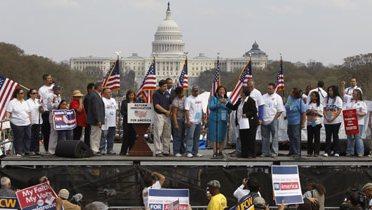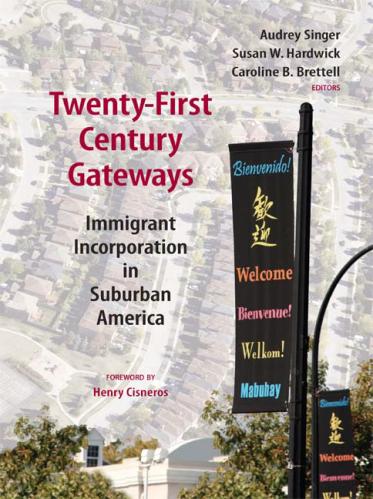Arizona injected new venom into the immigration debate in passing Senate Bill 1070 (SB 1070). Approved by state legislature and signed into law by Governor Jan Brewer, SB 1070 has the clear objective to increase enforcement against illegal immigrants in the state. As expected, the bill generated passionate responses across the political spectrum even before it was signed into law.
Even if lawsuits in federal courts prevent SB 1070 from being implemented, the problem still remains: Congress has dragged its feet on reforming immigration laws. Waiting much longer will only open opportunities for similar or new local efforts to curb illegal immigration. It will also allow public opinion to swell in favor of such laws and we might just see enough support to see SB 1070 “go national”.
Many public officials including President Obama were quick to criticize the new law. Within days, lawsuits were filed against SB 1070 by the National Coalition of Latino Clergy and Christian Leaders as well as two police officers, one each from Phoenix and Tucson. The federal government is eyeing the possibility of doing the same. Responding to public reaction, the Arizona legislature passed a new law within a week that will supersede SB 1070. This one attempts to reduce the probability of police using racial profiling as the basis of their investigations of a person’s legal status.
However, national polls show widespread support for SB 1070 with one showing that 51 percent of those surveyed considered that it is “about right” in its approach and 9 percent saying that it does not go far enough. Betraying Americans’ steadfast ambivalence on immigration, the same poll remarkably shows that 64 percent of those surveyed are in favor of allowing illegal immigrants to stay in the country either as guest workers or with the right to apply for citizenship. Another poll found that, in the days after the law was signed, more than three quarters of Americans had heard about it and, of those, 51 percent were in favor of it.
With the fall congressional elections looming, the debate is unlikely to subside. The reactions to Arizona’s law have put immigration enforcement and security at the forefront of the discussion. Surveys also show that public attitudes towards SB 1070 are largely divided by party affiliation which will certainly exert pressure on campaign politics. Republicans are likely to use it as a wedge issue, while Democrats are likely to avoid it. This will feed into the nationwide debate ensuring that enforcement the key element in such debate.
To make things even more heated, news reports of increased violence on the Arizona border associated with drug trafficking contributes to the feeling that illegal immigration is out of control. While not usually acknowledged, immigration to Arizona was already slowing well before the law was passed. The devastating housing crisis and recession dried up jobs and reduced incentives for immigrants to go to or to stay in Arizona. Led by losses in metropolitan Phoenix, the state saw a decline in the immigrant population on the order of 60,000 at the start of the recession, between 2007 and 2008, second only to California and on par with Texas and Florida.
However, one major critique of the new law, including by some local law enforcement officers, is that it will hamper their work not only by distracting them from fighting crime and violence but also by intimidating immigrants when they themselves are victims of crimes or can help solve investigations. With several advocacy groups and cities like Los Angeles and San Francisco calling for boycotts, the economic downside of SB 1070 for Arizona could make a bad economic situation worse. Moreover, SB 1070 may divert existing and new immigrants away from Arizona and into other states rather than reduce total national inflows.
Other states have suggested they will move forward with similar laws, and legislation has already been introduced in Pennsylvania by State Representative Daryl Metcalfe, a candidate for lieutenant governor. But state level reforms are likely to be held up in court and at best will deliver a hodge-podge of response.
Immigration reform must be resolved sensibly, humanely and comprehensively, and yes, in a bipartisan manner at the federal level. In fact, President Obama has said as much. Congress needs to recognize that leading the way swiftly through the process of comprehensive immigration reform might be easier than fighting state level initiatives while we wait for the right time.








Commentary
Could Arizona’s Immigration Law Go National?
May 14, 2010